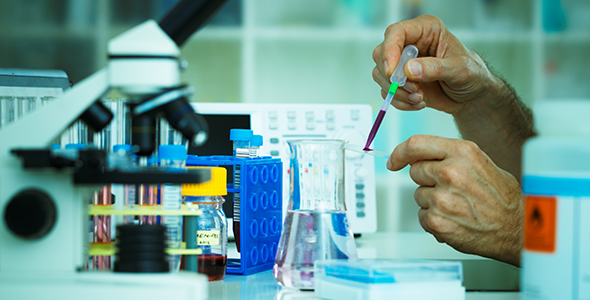By the bioMérieux Connection Editors
Laboratories around the world have paused regular work to pursue treatment for COVID-19. While there are still no evidence-based treatments available, scientists are evaluating a variety of options beyond supportive care. These include pharmacological interventions and neutralizing antibodies from recovered patients.
Pharmacological Treatments for COVID-19
In France, Institut Mérieux and others have contributed funding to VirPath, where researchers are evaluating three potential therapies against the standard of care: remdesivir, lopinavir, and a combination of lopinavir and interferon. Other companies and laboratories are evaluating drugs including favipiravir, chloroquine, hydroxychloroquine, ribavirin, tocilizumab, and sarilumab. By researching many possible options at the same time, scientists hope to find an effective treatment sooner.
Because research and clinical trials are currently underway, evidence for all potential therapies is still preliminary and often mixed. To date, there are several drugs that have shown some efficacy against COVID-19, but these data have mostly been from case reports or preliminary data from clinical trials. Additionally, while potential treatments may provide benefits against COVID-19, they can also lead to substantial side effects. For example, a study of chloroquine in Brazil had to be halted because some patients developed irregular heartbeats, which can lead to potentially fatal heart arrhythmia. The situation demonstrates that healthcare professionals should continue to proceed with caution when treating COVID-19 patients with trial therapies.
Antibody Treatment for COVID-19
In addition to drug treatments, researchers are also investigating whether neutralizing antibodies from recovered COVID-19 patients may provide clinical benefit. The approach involves injecting an ill patient with blood plasma from a recovered patient who has antibodies against SARS-CoV-2. The method is nearly a century old, but it has fallen out of general use as pharmacological agents rose to the forefront of medicine. However, because it has been effective for patients in the past, during the 1918 flu pandemic and later during the 2003 SARS outbreak, there is hope that it may also help COVID-19 patients.
Clinical Trials for COVID-19 Treatment
Regardless of the type of treatment, the challenge of conducting effective clinical trials remains. For COVID-19 treatment, ethical considerations prevent the use of double-blind, controlled studies, which are generally considered the gold standard for medical research. Physicians enrolling patients in clinical trials also must contend with the difficult circumstances facing their patients, which may go beyond illness and touch areas such as childcare or job loss. These stressors can make conversations around clinical trials more difficult. Still, healthcare workers and researchers know that this work is indispensable. COVID-19 is so new that the depth of scientific knowledge is shallow compared to well-known and intensely studied diseases like the flu. To effectively combat COVID-19, researchers must continue to study it, evaluate as many options as possible, and pursue the most promising until we have an effective evidence-based treatment.
Opinions expressed in this article are not necessarily those of bioMerieux, Inc.



